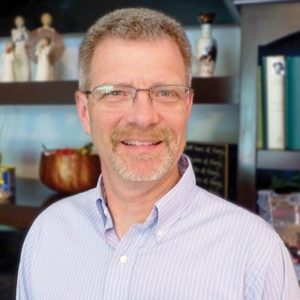Growth mindset leads to more success and achievement because of the openness to self-improvement and acceptance of challenges.
Painting, drawing, sculpting, improvisational jazz, composing music, cooking, and dancing are activities that fit as initial examples of creativity. When asked about how “creative” they are, people often joke that their drawing skills are limited to stick figures, or they joke about “making a joyful noise” when asked if they can sing. It is unfortunate that we tend to downplay our capabilities when it comes to creativity. Our church’s choir director says that if you can fog a mirror you can join the choir. Creativity is a trait all humans possess, though it may be revealed in a variety of areas.
The truth is that we are far more creative than we think we are, especially when we consider that creativity is found in every area of human endeavor. We are frequently limited in our thinking by three traps.
One trap is comparison with others. We see what others do and immediately judge ourselves as “less than.” Theodore Roosevelt nailed it when he said that “comparison is the thief of joy.” When evaluating our prospects and performance, our primary comparison should be to our past selves. We can’t control other people’s talents, efforts, or success, but we can control our preparation, effort, and performance. It can be helpful to draw on our own sources of inspiration and let our figurative or literal voice be heard. There are some questions we can ask ourselves that may help us focus on the creative process versus the results. Who are we creating for, and for what purpose? What need is being met, and how are the lives of others being helped? Be free. Stay in the moment. Draw inspiration from others while making your own contribution.
A second barrier is the anticipation of receiving negative feedback. Humans have a tendency to form a negativity bias. This bias leads us to expect more negative feedback regardless of the actual quality of our effort. The negativity bias can make us focus on where we believe we have fallen short. It prevents us from seeing growth or even believing that we can improve. We may give up after a half-hearted effort or simply stick to our routine, preferred solution, thereby maintaining the status quo. When we consider our efforts, we need an objective perspective to allow for progress; otherwise we may only see our mistakes.
One way to expand our focus beyond what we “can’t do” is to practice the “3 up – 3 down” process. First we force ourselves to consider at least 3 things we did well, 3 ways we improved, or 3 ways the novel solution addressed the need. Only then do we look at 3 areas we could improve. This process helps create a balanced perspective of ourselves and our ideas. Another way to improve our outlook is to avoid taking our own self-judgments and criticisms so seriously. We have literally thousands of thoughts per day. A great many of them we let pass through our consciousness without much consideration. There are others, however, that are very persistent. When we are in self-judging mode, these tend to be negative assessments of ourselves, our ideas, or our performance. It is possible to learn to let these unhelpful thoughts go without getting caught up with them. Too much self-evaluation inhibits creativity. We want to enjoy a sense of “flow” to enable thinking “outside the box.” Another great way to overcome a negativity bias is simply to practice, to be engaged in the creative process frequently without worrying about each outcome or performance.
A third barrier to exploring new solutions or trying something new is our mindset. Dr. Carol Dweck has researched and written extensively on mindset. Mindsets are basically self-perceptions; they include narratives or stories we tell ourselves about ourselves. She noted two basic mindsets — Growth and Fixed. Fixed mindset is the belief that we have defined limitations to, for example, talent, and that improvements or growth beyond those boundaries cannot be meaningfully developed. It’s not that we can’t be creative, it’s just that we place limits on our potential growth. A fixed mindset is identified with words like “can’t” and with an unwillingness to take the risk of entertaining new strategies or changes. People in fixed mindsets tend to be less resilient in the face of challenge or undesired results.
A growth mindset, however, is the belief that our talent can be honed with repeated effort. Growth mindset leads to more success and achievement because of the openness to self-improvement and acceptance of challenges. The person in a growth mindset harnesses the power of “yet,” as in “I’m not good at that yet.” They respond to failure as an opportunity to improve and with determination to grow. When you think about trying something new, listen to your self-talk and what you believe about your own possibilities. Harness the power of “yet” and let your struggles or actual failures lead you to improved performance. We are all in some stage of development and, unless you are bowling or pitching in a baseball game, can never actually arrive at perfection. Lean into the growth mindset and enjoy the learning experiment that is your life.






